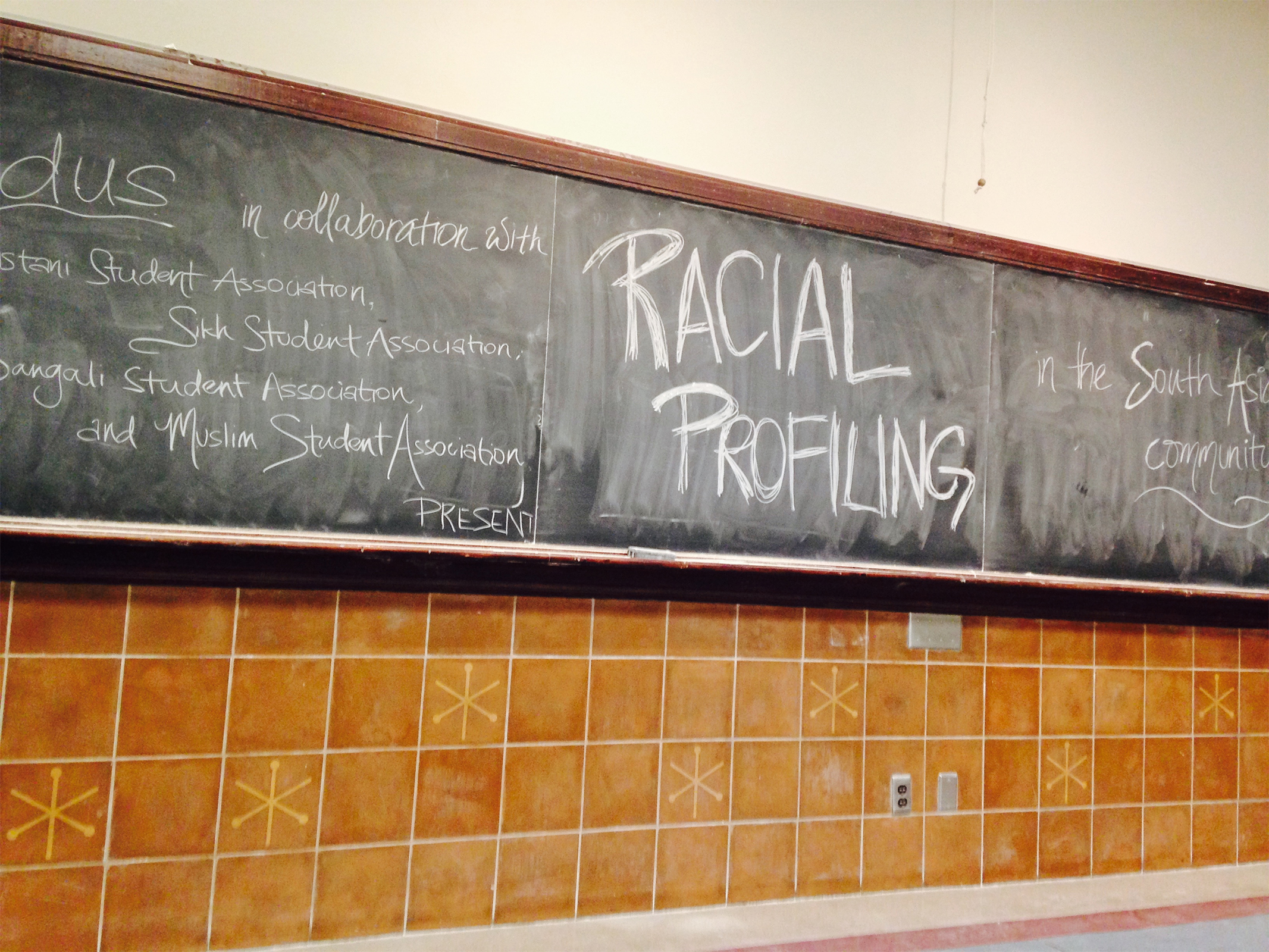Student groups discuss racial profiling against South Asians

(Courtesy of Zoya Chhabra)
By Amanda Wilcox
March 6, 2015 12:35 a.m.
More than a quarter of the nearly 40 South Asian and Middle Eastern students in the room raised their hands when a speaker asked if they had ever been called a terrorist.
Following the Feb. 10 Chapel Hill shootings that led to the death of three Muslim Americans and the Feb. 12 police assault of 57-year-old Sureshbhai Patel, various UCLA student groups came together Thursday to present what they said was a critical discussion on racial profiling of South Asians in the United States.
Indus at UCLA, in collaboration with the Pakistani Student Association and the Muslim Student Association, among others, planned the event in which students shared their experiences with racial profiling and discrimination.
“We don’t have a lot of conversations about this, and we hope that this event can start that dialogue so that we can start establishing concrete steps to solve the problem,” said Ria Jain, a second-year molecular, cell and developmental biology student and the political director of Indus.
Some students at the event said they think 9/11 made people more afraid of South Asians, Sikhs and Muslims, especially at airports.
“9/11 occurred when I was five, so I grew up with children trying to rip off my turban as they yelled ‘Osama’,” said Guransh Singh, a first-year undeclared student and member of the Sikh Student Association.
Rafay Haseeb, a third-year political science student and president of Indus, spoke about some of the stress he experienced while traveling as a Muslim and being racially profiled in the post-9/11 era.
“Before I go to the airport, I make sure I’m clean shaven and I’m not wearing anything ‘un-American,’ because anything you can do to reduce the risk (of racial profiling) is worth it,” he said.
According to the FBI’s Uniform Crime Report, anti-Muslim hate crimes in the U.S. rose from 20 to 30 per year before 9/11 to 500 in 2001, and 150 occurred per year after 9/11. The number has stayed around that level in the years since.
Some students said they have also experienced racial profiling or discrimination on UCLA’s campus.
Morris Sarafian, a third-year political science student and member of the Armenian Students’ Association, said he thinks he has been racially profiled and stopped by police on campus because of his appearance and the Arabic music he was playing in his car.
Niyati Patel, a second-year economics student, said she came to the event because she relates to many of the topics students discussed at it.
“This event taught me more about South Asian experiences and growing up with both internal and external discrimination. Being here as UCLA students, we can begin to start a conversation and bring about change,” she said.
Shahrukh Khalique, a second-year biomedical engineering student and member of the Pakistani Student Association, said he thinks the event united South Asian students.
“Indus used this event to give us a medium to talk about what unites us and how we can achieve things together,” Khalique said. “We need to make sure that the new generation isn’t applying the same things (labeling and profiling) that we saw as little kids.”


